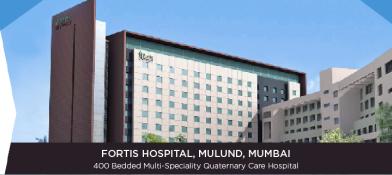Heart Scan (Coronary Calcium Scan)
Overview
The calcium score in a person’s body is a significant indicator of their heart health. The heart scan also known as the coronary calcium scan involves using a specific type of X-ray called the CT scan. The process includes taking images of the blood vessels like arteries that carry blood from the heart. The pictures help doctors check for calcium deposits. When calcium accumulates in the arteries, it constricts the arteries and affects the blood flow, and increases the risk of heart conditions.
The procedure helps in indicating a coronary artery disease before the symptoms begin to show. The indications can help assess the risk of heart conditions and strokes and enable the doctor to modify the treatment for coronary artery diseases if required.
The test is also known as the calcium scan test, cardiac CT for calcium scoring, and heart CT calcium scan.
How Does Plaque Build Up In The Arteries
Plaque is generally present in the arteries and it consists of fat and calcium. The substance is soft wax-like initially but after some time it can harden. This hardened plaque can block the arteries and slow down the flow of blood to various parts of the body. This leads to multiple body parts not getting sufficient oxygen.
The collection of plaque in the arteries causes pain and discomfort in the chest and the condition is called angina.
The plaque can crack open and form blood clots that can cause a heart attack. The heart scan helps to determine the extent of calcified plaque in the arteries so doctors can decide on the treatment.
Why Is The Test Done
Doctors recommend a heart scan to understand the risk of a heart attack and formulate the required treatment. They consider the following factors before recommending:
- If the person has a definitive family history of coronary arterial diseases and high cholesterol levels.
- If the person is at risk of intermediate heart attacks.
- If the level of heart attack risk cannot be determined by the doctor.
- If the person is obese.
- If they have a sedentary lifestyle.
The doctor determines the factors based on the age, gender, blood pressure, cholesterol levels, and smoking habits of the person.
The calcium scan test is not advised by doctors as a regular screening process for people who are prone to heart problems. The procedure is also not suggested for people who have already had a heart attack, have a stent implanted, or have undergone a coronary bypass surgical procedure. There are other procedures and tests for those conditions.
The Procedure Details Of The Heart Scan
- The person is asked to restrict the intake of caffeine and smoking for four hours before the procedure begins. They are required to remove all pieces of jewelry and clothing from the waist up.
- The technician places sticky patches on the chest of the person called electrodes which are attached to a machine with the help of wires, that assists the technician with checking the heartbeat of the person and clicking the images of the heart at the right time and position.
- If the person is claustrophobic or feels uneasy in confining places, they are given medicines to calm their nerves. Medication is also given to slow down the heart to obtain clearer images.
- The person is asked to lie on their back on a table that can be slid into the CT scanner which looks like a hollow tube or a tunnel. The person’s body goes inside the tube while their head remains outside.
- The technician can wait on the side of the glass wall of the tube and can converse with the person undergoing the procedure with the help of a speaker. The full process takes around 10 to 15 minutes and the person can go about their routine after the procedure is done.
- The person is required to stay still when the scan is going on and may also be asked to hold their breath for a few seconds.
- The doctor receives the scan results on the same day of the test and the scan provides an ‘Agatston Score’. If the score is zero it means no calcium was located in the arteries. However, the higher the score the quicker the doctor has to decide on a treatment plan which includes lifestyle changes like exercising, eating habits, and also the medications taken by the person. Based on the score the doctor may suggest additional tests.
- A score of 100 to 300 indicates a medium level of plaque accumulation and means that the person is at risk of heart disease in the upcoming three to five years. A score of more than 300 is an indication of higher heart attack risk and extensive heart disease.
- The test score can also be given in the form of a percentage. A calcium score of more than 75% means that the person is at risk of a heart attack.
- It is important to understand that the score is not a sure indication of a heart attack, but it does signal making certain heart-healthy modifications to the lifestyle of the person.
Risks Associated With The Coronary Calcium Scan Procedure
- The coronary calcium score doesn’t include the usage of any contrast dyes so a person is not exposed to any risks associated with that. However, they are exposed to radiation. This creates a small amount of risk to cancer especially if the person is below 40 years of age and they have to undergo multiple scans.
- The CT scan can affect the fetus, hence the test is not recommended for pregnant women.
- Most of the time these scans are not covered by insurance and there are less expensive alternatives like blood tests and blood pressure checks available that can help the doctor get more understanding of the risks of a heart attack.
Conclusion
A heart scan or a coronary calcium scan is a non-invasive process through which the doctor can evaluate the condition of the arteries of a person and determine if they are at risk of heart disease. The test is not the ultimate parameter to assess the risk factors but it does provide valuable insights to help doctors investigate further and decide on the appropriate treatment to ensure optimum heart health of a person.



















